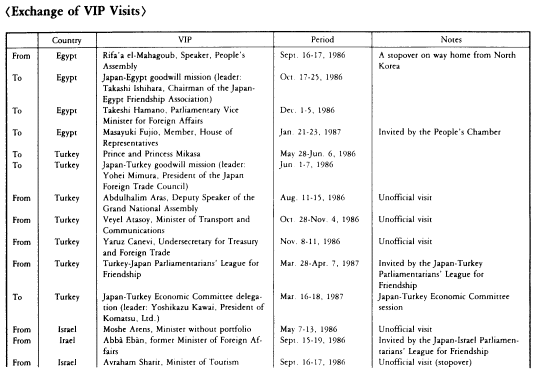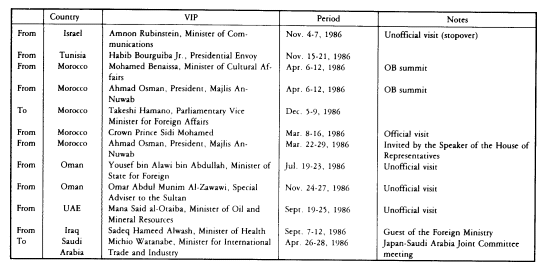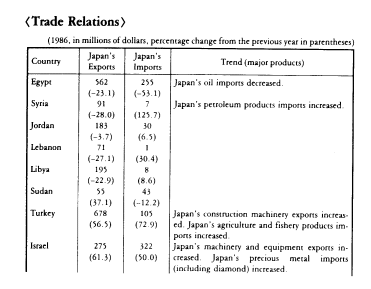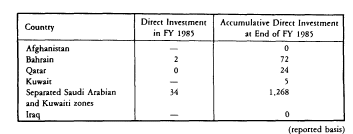
Section 7. Middle and Near East
(1) Japan has positively enhanced the friendly, cooperative relationship with the Middle and Near East, considering the region's importance for the international politics and economy, and the interdependent relations between Japan and the region. In 1986, Japan continued efforts to create a climate conducive to an early peaceful settlement of the Iran-Iraq conflict and supported promotion of the Middle East peace negotiations in order to further expand its friendly, cooperative relationship with the Middle and Near East. Japan's exchanges of people with the region were active in the year. Especially, Japan invited the crown prince of Morocco as an official guest to expand exchanges with Maghreb countries. Japan has also promoted economic and technical cooperation for national construction, including industrialization, and development of people in the Middle and Near East. In this respect, the fifth Japan-Saudi Arabia Joint Committee meeting was held in the year. Japan Week events also took place in Turkey and Egypt in the year to promote the new cultural area of Japan's exchanges with the Middle and Near East.
(2) Japan's trade with the Middle and Near East in 1986 posted a trade deficit of $8.2 billion as exports declined by 18% from the previous year to $10.6 billion and imports by 38% to $18.8 billion. The Japanese trade deficit plunged by 52% in the year. The reason for the increase of the deficit is that although Japanese exports declined due to the worsening financial situation in oil-producing nations amid a worldwide oil glut, Japanese imports decreased even faster than exports because of the decline of oil price.






(Note) The separated Saudi Arabian and Kuwaiti zones were formerly a neutral zone separated in May 1970.